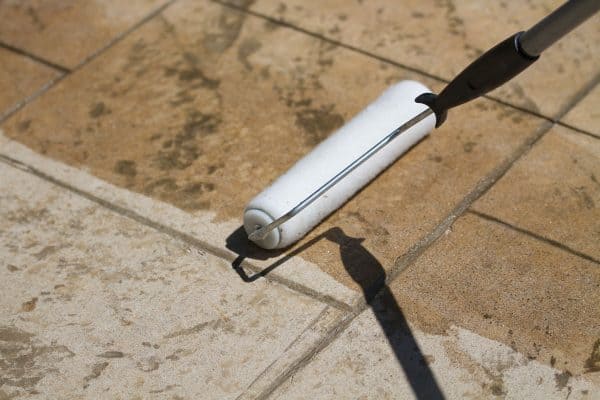Disclosure: We may get commissions for purchases made through links in this post.
Flagstone pavers can be put around the pool deck. These are slabs of natural stones. Most pool owners like to put flagstone near the pool because there is no danger of skidding. Are you planning to use flagstone in your pool? We asked experts regarding the properties of flagstone and how they can affect your pool deck.
Flagstone is used for pool decks, usually without any shade. These receive the sun's rays directly, so flagstones absorb heat throughout the day. Thus, flagstone in the pool vicinity can get hot. The dark-colored stones get hot more than the lighter shades.
This post will help you appreciate the beauty of flagstone. You will also find ways to be protected against hot flagstone. Keep on reading to find out how.
![Is A Flagstone Pool Deck Hot? [And How To Prevent Heat On Your Feet]](https://pavingplatform.com/wp-content/uploads/2022/03/Is-A-Flagstone-Pool-Deck-Hot.-800x1200.png)
What is Flagstone?
Pool decks are more attractive when you put pavers around them. Flagstone is more commonly used for designing the pool area. These are safe to use because they are non-slip and non-skid even when wet. These also absorb moisture.
These stones come in various shades. You can choose the right color that suits your taste. Designers say that if you want a formal-looking pool deck, go for a darker shade. For a more-laid back pool, you can even choose uneven shapes with lighter colors.
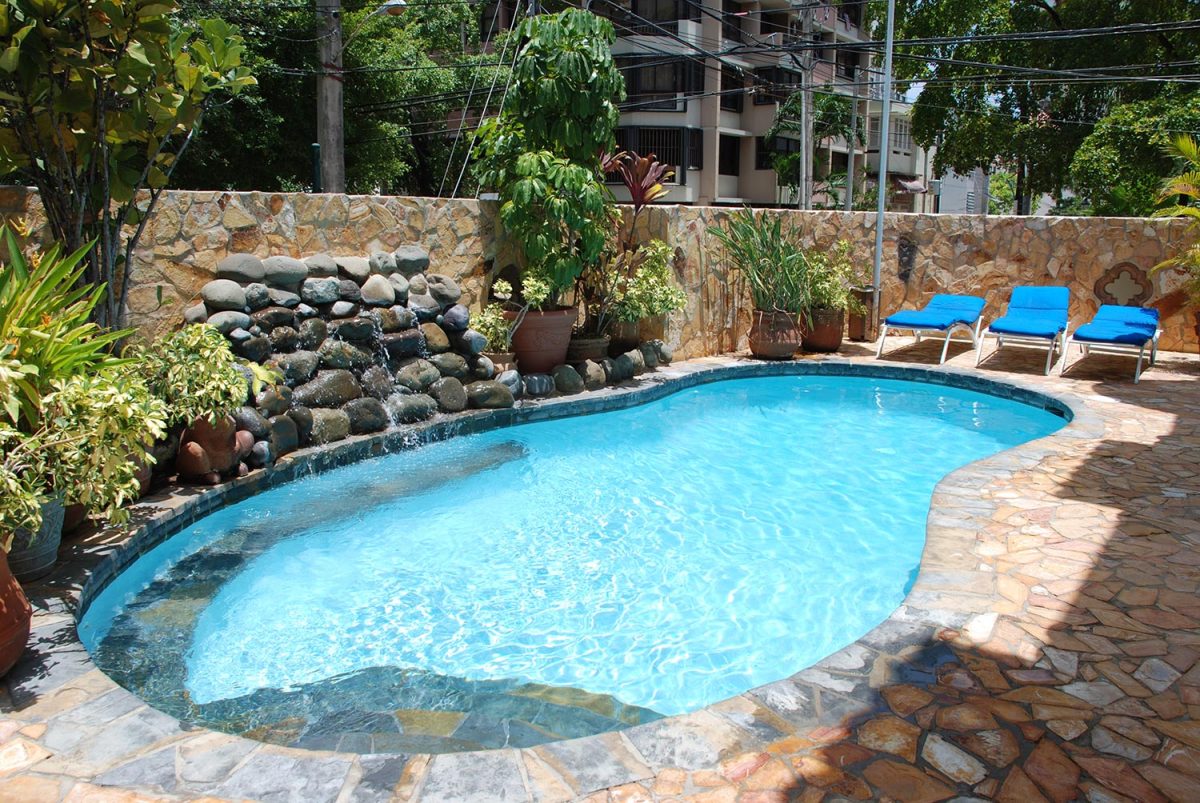
Why Use Flagstone for the Pool Deck?
There are many pavers available for the pool deck. But pool owners prefer flagstone despite being costly when compared with other notes. They will get their money's worth because these are low maintenance. What's even better is that regular maintenance of flagstone will keep these looking new even after the years.
Another positive point for flagstone is the narrowly packed joints. These allow grass to grow between the tiles, which adds to the appeal of the pool area.
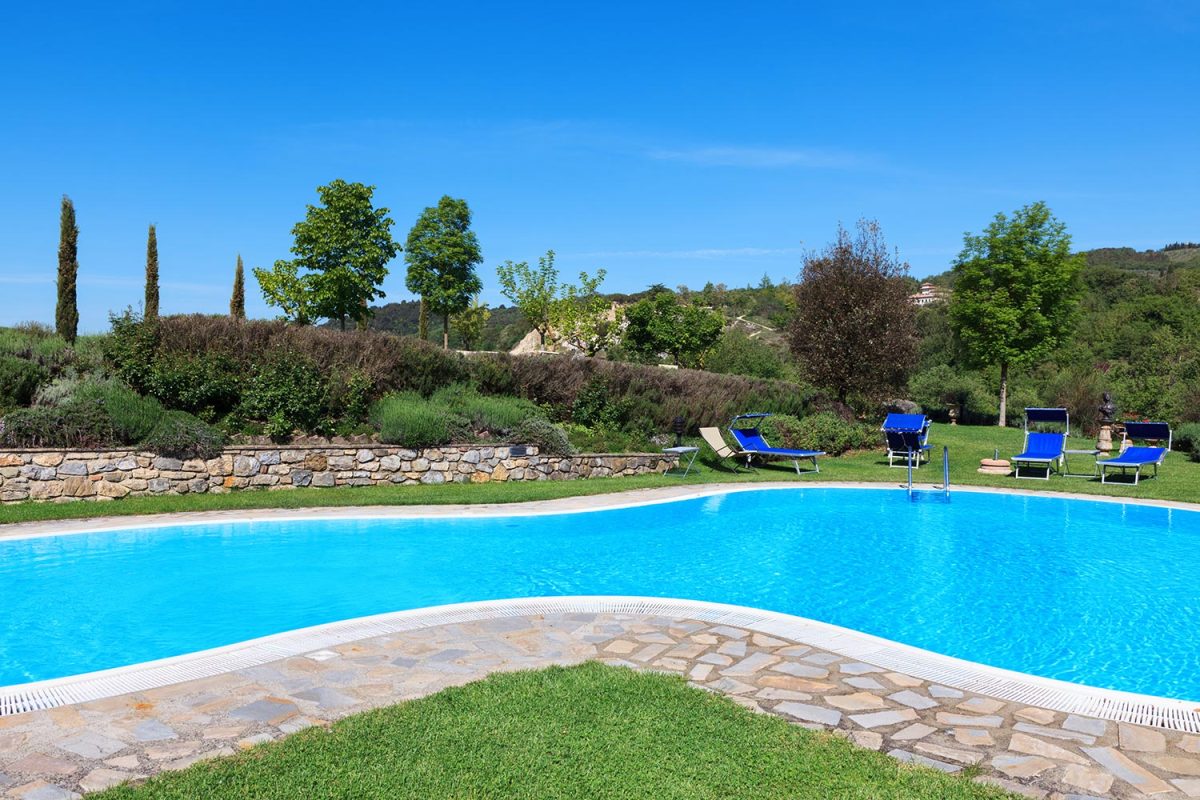
Check out this post to know what other pavers you can use for your pool deck: "Are Porcelain Pavers Good for Pool Decks."
What Happens to Flagstone When it Gets Hot?
Being heat resistant is another characteristic of flagstone. However, these stones will feel hot because they are under the sun. This is one concern for pool users during summer.
On a particularly hot day, the temperature of a flagstone can get to 112 degrees. It is comparable to the temperature of concrete. The darker the shade of the flagstone, the hotter it can get especially during midday.
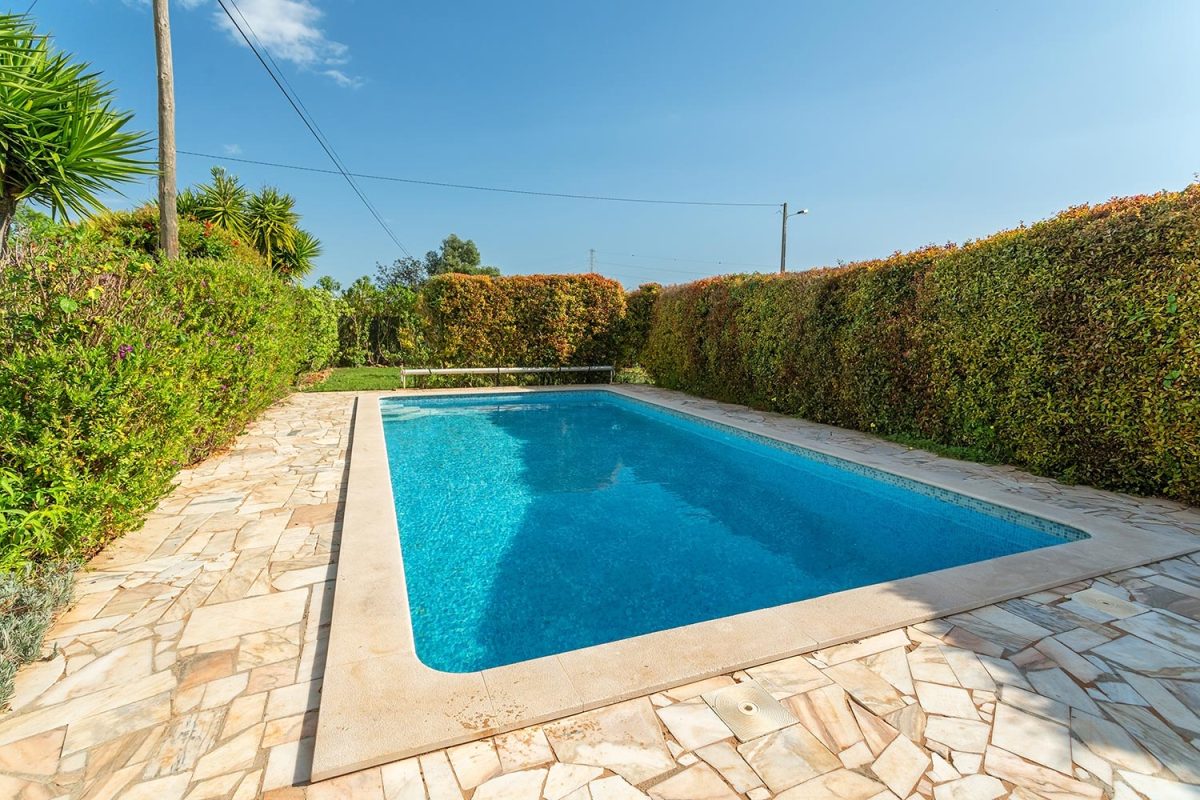
So, it might not be a good idea to step barefoot on a flagstone when the sun is at its highest. But you don't have to worry about your feet getting burnt since there are ways to prevent it.
How to Prevent Heat on Feet from Your Flagstone Pool Deck?
On hot days, you can say goodbye to walking barefoot towards the pool. Why? The flagstone pavers leading to the pool are so hot because they are exposed to the sun. Here are some suggestions to protect your feet:
Wear Flip-flops
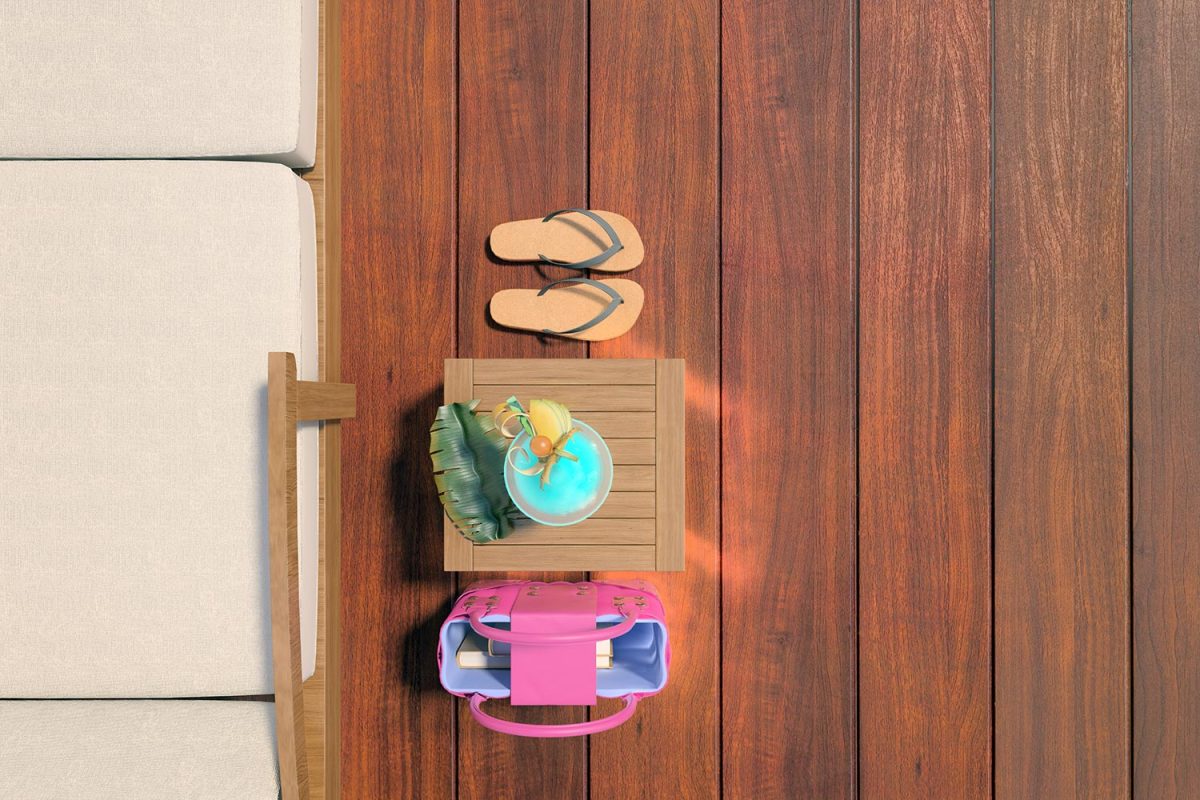
This is the cheapest and easiest solution to protect your feet against the hot flagstone. Aside from the heat, you will also protect your feet from stones or small dirt that may be present around the pool deck.
Choose the size that fits just right so you can walk comfortably. Flip-flops also have grooves on the bottom, you won't have to worry about slipping when you step on wet tiles.
Check out some flip-flops on Amazon.
Use Rubber Mats
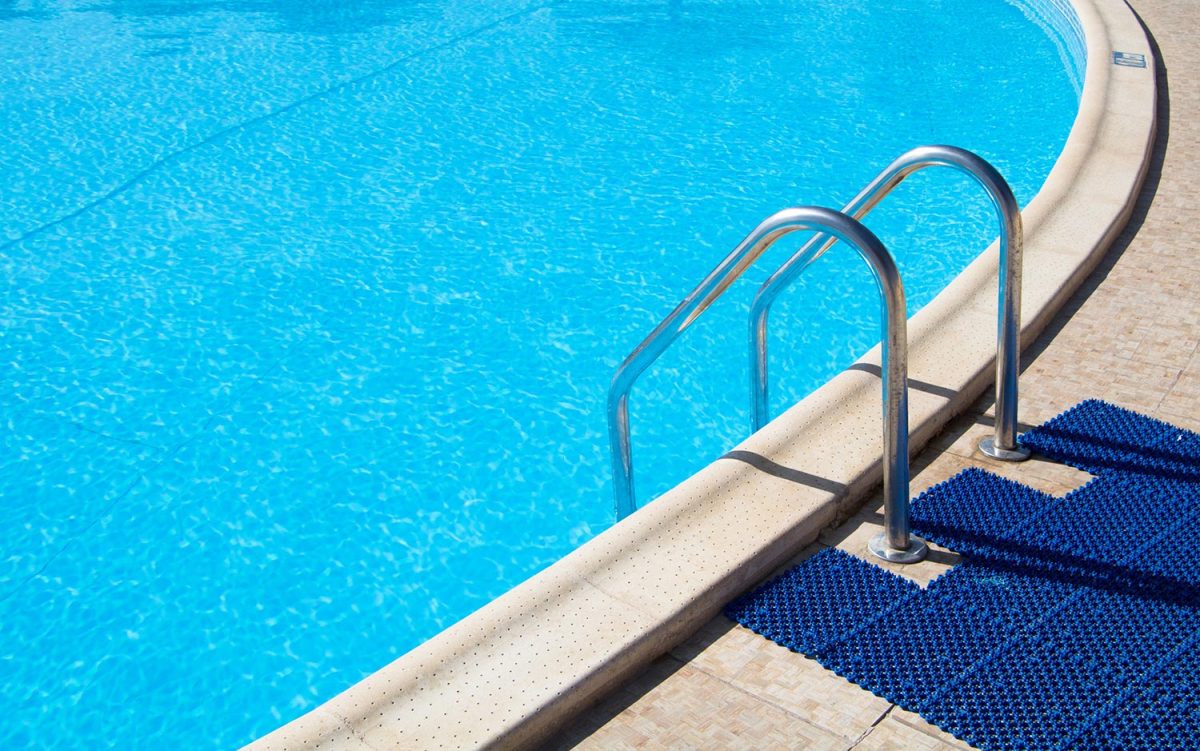
You might think that putting rubber mats on top of the pavers is counterproductive because you won't be able to show off your nice stones. But the mats will absorb the heat on your way to the pool. Look for temperate stable pool decking to put in areas surrounding the pool. These come in attractive shades and are also non-skid.
Put Artificial Grass
Earlier, we mentioned that grasses growing between pavers will help absorb the heat from the sun. You protect your feet from the hot tiles when you step on the grass. But if you don't have the time to grow and maintain real grasses, then artificial ones are your next best option.
Pool designers say that artificial grasses do not get hot as concrete or stone tiles. Most importantly, these do not become slippery when wet. You don't have to maintain it, nor need to put pesticides.
Click here for outdoor turf carpeting on Amazon.
Choose Light-Colored Pavers
If you have the time and resources, you could replace the current pavers with light-colored ones. There is enough evidence to say that light-colored varieties can maintain a much cooler temperature even if it absorbs the sun's rays.
You can make your pool deck attractive using a paver with light shade. And your feet will thank you because they don't have to step on hot tiles.
Can Flagstone be Kept Cool?
Flagstone remains the popular choice of pavers for the pool deck. These are attractive, tough, and do not require much maintenance. However, the dark-colored stones become hot easily.
We understand if you want to retain the dark-colored flagstone in your pool because hot stones are not a year-long concern. Here are some solutions for cooling the pavers:
- Spray water on the pavers
- Install a misting system
- Put a pergola in the pool deck
- Install a permanent awning in the pool area
- Plant trees near the pool deck
Click here to see a canopy on Amazon.
Make Your Flagstone Last Longer
Flagstones are one of the most durable pavers that you can use. When you install these in the pool area, they can last for centuries. You won't have to replace them unless one of the tiles break. And when that happens, you only have to change the chipped tile.
Seal flagstones as soon as you install them. Doing so will prevent the water stains from spoiling the look of the paver. Choose a matte finish so that water will bead up instead of seeping through the material. Contractors recommend applying sealers every year.
We did mention that flagstones are low maintenance. But you should take the time to sweep the patio regularly. Remove the leaves as soon as they fall on the floor, so that they will not create stains. It is also important to remove snow since it will induce moisture on the tile joints.
Read to post to know more about sealing pavers: "How Long to Wait to Seal Pavers."
What are Alternatives to Flagstone?
If you want to get pavers that can manage heat, contractors recommend other materials aside from flagstones. Travertine is a preferred choice because it doesn't retain much heat. It also comes in neutral shades like white, gray, and yellow. Most importantly, it is also affordable.
Light-colored marbles are also effective in reducing heat. You could use this in the pool area so you won't have to worry about stepping on hot pavers. There are tumbled marble designs that you can choose from.
Concrete pavers, the light-colored kind, are also efficient in absorbing the heat from the sun. These can get hot, but they will have lower temperature compared with other pavers. But the space between the concrete pavers help in reducing the heat from the sun.
Cool Thoughts
The pool deck should be your refuge on a hot summer day. It may not be possible when the pavers you walk on are very hot. But you can take steps to protect your feet from the hot tiles.
When you use flagstone for the pool deck, these can get searing because they are under the sun the whole day. If you want to lessen the heat from the tiles, you can install a covering for the entire pool deck. Or you can also put rubber mats on the tiles if you don't want a roof.
Your concern about hot flagstone pavers may only be valid during the summer season. For the rest of the year, the temperature is bearable.




![Vibrant Red Paver Stone Path, Can You Spray Paver Sealer? [How To Apply It]](https://pavingplatform.com/wp-content/uploads/2022/04/Vibrant-Red-Paver-Stone-Path-600x400.jpg)
![Properly laid out red pavers for a garden, Can You Tint Paver Sealer? [And How To]](https://pavingplatform.com/wp-content/uploads/2022/04/Properly-laid-out-red-pavers-for-a-garden-600x400.jpg)
